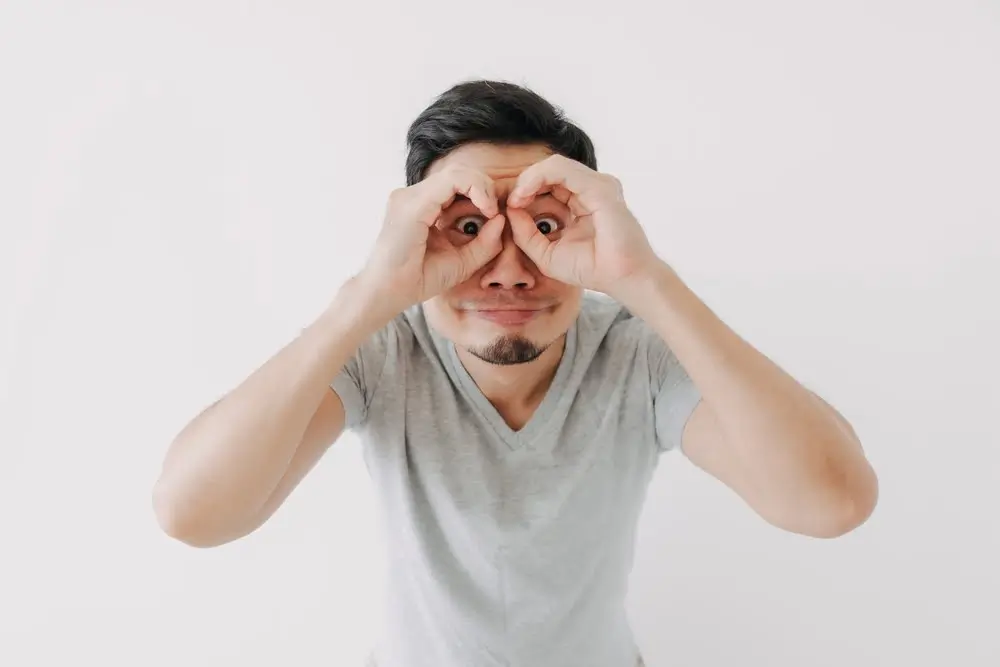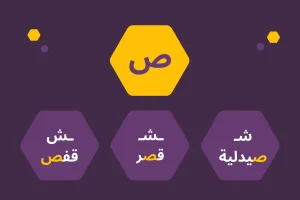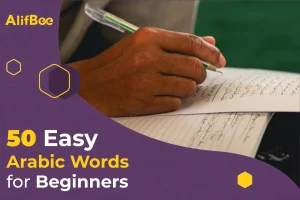
Importance of Eye-related Arabic Verbs
Welcome to another blog series that will take you into the heart of the Arabic language, where even the simplest things like using our eyes can have a multitude of meanings. In these new blogs, we will be looking at different verbs and actions associated with essential body parts. As every body part is responsible for a variety of actions, each language expresses these actions in its own unique way. We carry out many actions with our eyes, ears, nose, mouth, hands, etc. Therefore, looking at the verbs that can help us express these actions is an essential part of learning and speaking a language.
Our first blog in this series will focus on one of the most important parts of our body, which is the eyes. Imagine the wide array of actions we do with our eyes from looking and seeing to glancing and staring. These verbs do not only express actions but also reflect deeper emotions and intentions behind some actions.
Today we will look at 7 main Arabic verbs that are related to our most precious body part; the eyes.
Understanding these eye-related verbs and knowing how to use them can add a whole new dimension to your Arabic chats. It can make your conversations more lively, more real, and definitely more interesting. Whether you’re learning Arabic out of passion, for school, for work, or just to try something new, these verbs will bring a real sparkle to your Arabic vocabulary.
So, are you ready to step into this fascinating aspect of the Arabic language? Let’s start!
Verb 1: يَنْظُر
to look
Yanẓur

Examples
أمثلة
The student is looking at the teacher during the explanation.
ينظر الطّالب إلى الأستاذ أثناء شرح الدّرس
The man looked up at the sky, searching for stars.
نظر الرّجل إلى السّماء، بحثًا عن النّجوم
The girl is looking at the flowers in the garden.
تنظر الفتاة إلى الأزهار في الحديقة
Looking is a basic human action, and mastering the verb “ينظر” will allow you to describe where someone is directing their gaze. Whether you’re discussing an art piece or describing the way someone is examining their surroundings, “ينظر” is a versatile verb that will enrich your Arabic vocabulary.
There are two other verbs similar to this action that are as commonly used – يرى and يبصر, each with subtle differences in meaning. The verbs يرى and ينظر primarily focus on the physical act of seeing without involving the mind to interpret what is seen. On the other hand, يبصر implies that the person not only sees the image but also understands it more deeply.
Verb 2: يُشَاهِد
to watch
Yushāhid

Examples
أمثلة
The audience is watching the play attentively.
يُشاهد الحضورُ المسرحية بانتباهٍ
The mother is watching her children playing in the park.
تُشاهد الأمُّ أطفالها وهم يلعبون في الحديقة
The coach watched the team’s performance during practice.
شاهد المدرّب أداء فريقه خلال التّمرين
When you’re observing something more attentively, the verb “يشاهد” is a perfect choice. Whether it’s watching a movie, a sports event, or monitoring someone’s actions, “يشاهد” helps you convey focused attention. Unlike the first verb which does not take a long time, this verb also indicates using your eyes for an extended period with a decided intention.
Verb 3: يُلَاحِظ
to notice
Yulāḥiẓ

Examples
أمثلة
The teacher noticed the student’s improved performance.
لاحظ الأستاذ تحسّنًا في أداء الطّالب
The girl notices whenever there’s a change in her friend’s behavior.
تلاحظ الفتاة أي تغيير يطرأ على سلوك صديقتها
The driver noticed the new traffic signal.
لاحظ السائق إشارة المرور الجديدة
Crying is a powerful expression of sadness, and “يبكي” allows you to describe this emotion in Arabic. Whether it’s due to sadness, frustration, or joy, “يبكي” will enable you to discuss the emotional aspects of a situation.
Verb 4: يَبْكِي
to cry
Yabkī

Examples
أمثلة
The child cries when he is away from his mother.
يبكي الطّفل عندما يكون بعيدًا عن أمّه
The woman cried due to losing her job.
بكت المرأة لخسارتها عملها
The young man cried after reading the sad news.
بكى الشابُّ بعد أن قرأ الخبر الحزين
Crying is a powerful expression of sadness, and “يبكي” allows you to describe this emotion in Arabic. Whether it’s due to sadness, frustration, or joy, “يبكي” will enable you to discuss the emotional aspects of a situation.
Verb 5: يُحَدِّق
to stare
Yuḥaddiq

Examples
أمثلة
The boy stared at the artwork in admiration.
حدّق الصبيّ في العمل الفنّي بإعجاب
The lady stared at her husband in anger.
حدّقتِ السيدة بزوجها غاضبةً
The cat stares at the mouse with curiosity.
حدّقت القطة بالفأر بفضول
Staring involves a fixed, intense gaze, and “يحدّق” is the Arabic verb you need to describe it. This verb can be used to express admiration, curiosity, or even aggression, depending on the context.
Verb 6: يَغْمِز
to wink
Yaghmiz

Examples
أمثلة
The young man winked at his friend in agreement.
غمز الشاب لصديقه تأييدًا له
The girl winked at her sister playfully.
غمزت الفتاة أختها مازحةً
The actor winked at the audience during the performance.
غمز الممثّل الجمهور أثناء أدائه للدّور
Winking is a playful and often flirtatious action, and “يغمز” is the verb that captures this expression in Arabic. Use it to describe someone’s cheeky, conspiratorial, or reassuring gesture.
Verb 7: يَسْتَرِقُ النَّظَر
to peek
Yastariqu alnnaẓar

Examples
أمثلة
The child peeked at his birthday gifts.
استرق الطّفل النّظر إلى هدايا عيد ميلاده
The lady peeked at the last page of the book.
استرقت المرأة النّظر إلى آخر صفحة في الكتاب
The neighbor peeks through the window to see what is happening.
يسترق الجار النظر عبر النّافذة ليرى ما يجري
Peeking implies a secretive or curious glance, often accompanied by a desire to remain unnoticed. The verb “يسترق النظر” is perfect for describing situations where someone is trying to catch a glimpse of something without being detected. The literal meaning of this expression is “to steal a look”, which is very expressive.
Final word
And there you have it – the wonderful world of eye-related Arabic verbs in all their glory. Can you see how they bring a fresh, lively twist to your Arabic conversations? They’re like little nuggets of gold, ready to enrich your daily chats and take them to the next level.
Keep practicing, keep exploring, and keep your eyes wide open to the beauty of the Arabic language. There’s so much more to discover, and I can’t wait to guide you through it all. Thank you for joining me on this journey, and stay tuned for more fascinating aspects of the Arabic language.
Don’t forget to check out our planner, which offers a 30-page worksheet and more than 200 exercises and activities. This comprehensive planner will help you consolidate what you’ve learned and boost your learning journey with the necessary practice.




